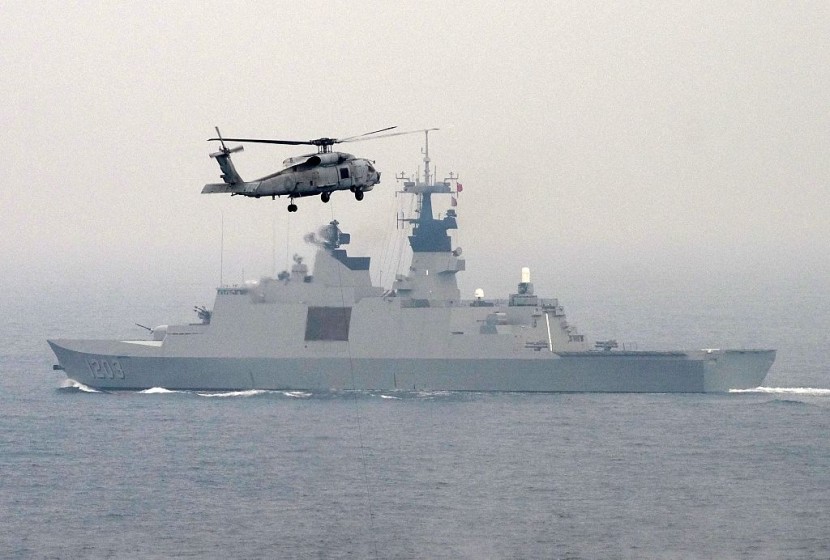The United States has intensified its response following a series of attacks by Houthi rebels on three commercial vessels in the Red Sea.
These incidents, which involved Iran-backed militants, have prompted the US to consider all appropriate responses as tensions escalate in the region, as per Politico.
US Destroyer Engages Houthi Drones in Defensive Action

On Sunday, the USS Carney, an Arleigh Burke-class destroyer, engaged in defensive action by shooting down three aerial drones launched by the Houthi rebels. This response, as reported by US Central Command, follows the distress calls from the targeted commercial vessels.
This incident marks a significant rise in hostilities, being the second attack on the USS Carney by the Houthis within two weeks amid the ongoing Israel-Hamas war.
The Pentagon, acknowledging the situation, stated they are monitoring the developments and will provide further information as it becomes available. These attacks, which lasted for nearly five hours, did not result in any damage to the US warship or injuries to its crew.
The Houthi rebels, taking credit for these attacks, have been increasingly aggressive in the region. They have been targeting not only commercial vessels but also directly engaging with US naval forces. This includes the recent shooting down of a US MQ-9 Reaper drone over the Red Sea.
Former Ambassador to Iraq, Nathan Sales, emphasized on Fox News the critical role of Iran in these attacks. He stressed the need for a robust US military response to counter these threats, suggesting that actions should target not only the Houthi proxies but also their Iranian backers.
US Central Command has confirmed multiple attacks from Houthi-controlled areas in Yemen, funded by Iran. These incidents pose a direct threat to international commerce and maritime security, endangering the lives of various countries, according to Washington Examiner.
US Considers Houthi Terrorists, USS Mason Attacked
Sales also discussed the possibility of re-designating the Houthis as a terrorist organization, a status removed shortly after President Biden took office.
Meanwhile, the USS Mason, another US Navy destroyer, was involved in a confrontation off the coast of Yemen. The destroyer responded to a distress call from a hijacked tanker in the Gulf of Aden, leading to the surrender of the attackers.
Hours later, the USS Mason was targeted by two ballistic missiles from Houthi-controlled Yemen, underscoring the severity of the situation.
The Biden administration is considering re-adding the Houthis to the terrorist organization list in response to their recent actions, including the seizure of the cargo ship Galaxy Leader and targeting civilians. This consideration comes as a shift from the early decision in Biden's presidency to lift the designation, which was initially aimed at facilitating humanitarian aid delivery to Yemen.
This sequence of Houthi rebel assaults, their deliberate targeting of United States naval forces, and Iran's participation serve to underscore the intricate and intensifying geopolitical situation in the Middle East. Presently, the United States is confronted with the task of formulating a strategic approach that not only mitigates these perils but also maneuvers through the intricate geopolitical intricacies of the area, Mail Online reported.
© 2025 HNGN, All rights reserved. Do not reproduce without permission.








